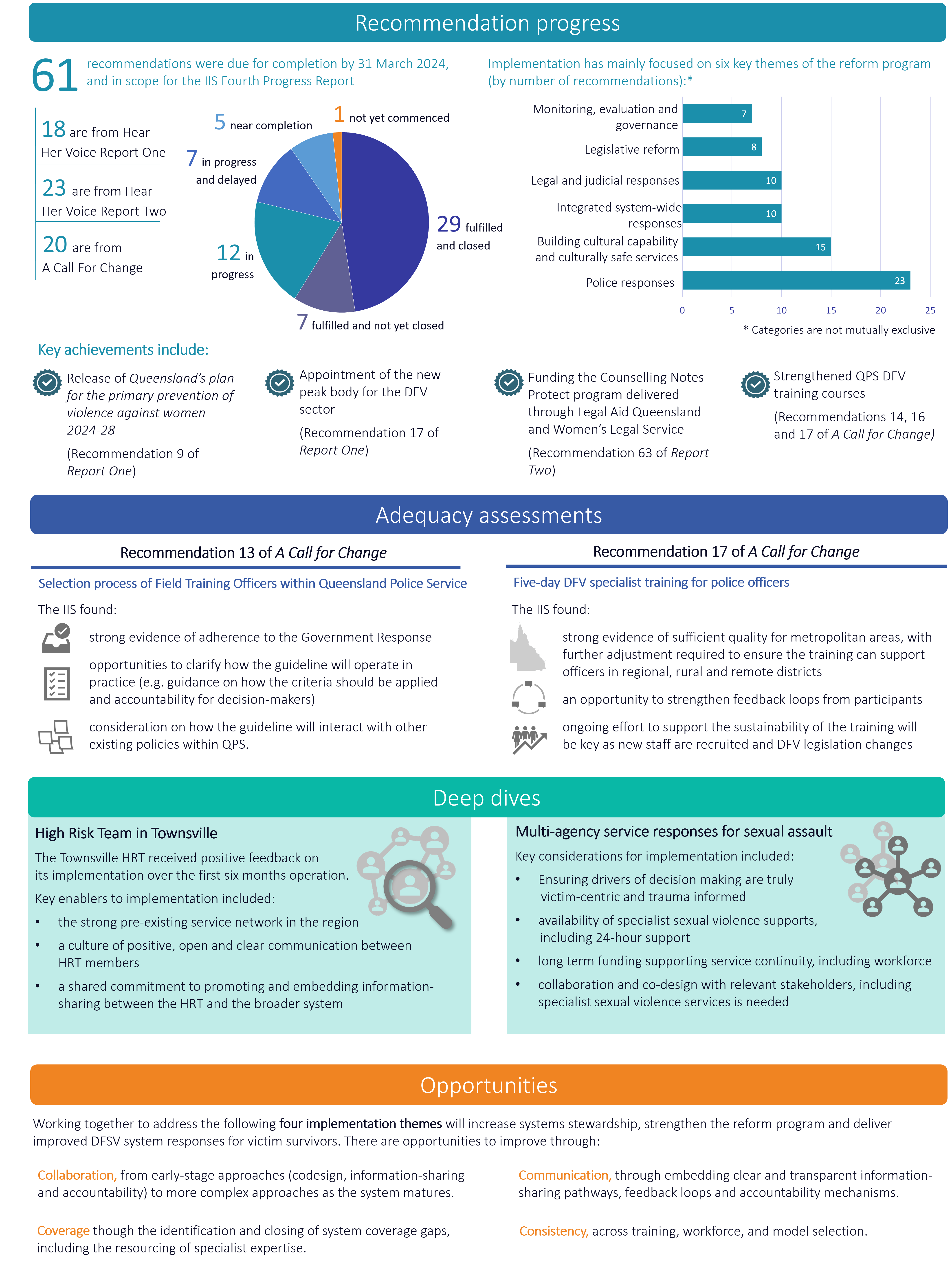Fourth progress report
The Office of the Independent Implementation Supervisor—Women’s Safety and Justice Taskforce Reforms: Biannual Progress Report 4 (May 2024) (fourth progress report) considers the progress of the Queensland Government Response to the two Hear her voice reports by the Women's Safety and Justice Taskforce and The Independent Commission of Inquiry into Queensland Police Service responses to domestic and family violence (A Call for Change) for the period 1 October 2023 to 31 March 2024.
Of the 61 recommendations due for delivery in this period, 36 have been completed (with 29 fulfilled and closed and 7 fulfilled and not yet closed). Of the remaining recommendations, 12 are in progress, 7 are in progress and delayed, 5 are near completion and 1 has not yet commenced.

The fourth progress report includes an adequacy assessment of two recommendations from A Call for Change, being the new selection policy for Field Training Officers and the five-day DFV specialist training within QPS.
The OIIS also conducted deep dives into the new High Risk Team (HRT) in Townsville and into multiagency responses to sexual violence, including the Sexual Assault Response Team (SART) in Townsville.
This involved significant consultation with DFV services, the QPS and with the sexual assault services sector across Queensland. The Office of the Independent Implementation Supervisor (OIIS) visited locations across Queensland to conduct consultation, including Mount Isa, Townsville, Maryborough, Dalby, Ipswich, Toowoomba and the Gold and Sunshine Coasts. The findings from the adequacy assessments and deep dives are outlined in detail in the fourth progress report and a summary of each is also provided on our progress snapshots page.
